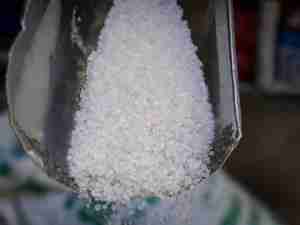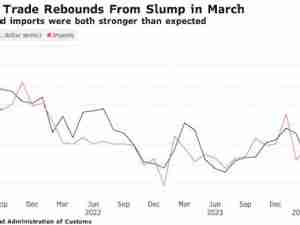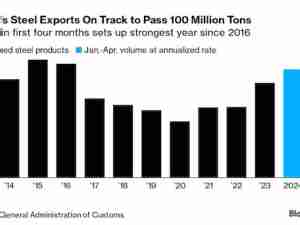President Joe Biden said China’s leader had expressed worries about the US strengthening its domestic production of semiconductor chips as his administration moves to reduce reliance on Asian suppliers and restrict Chinese access to chipmaking technology.
“I’ve heard from Xi Jinping that he’s a little concerned about that,” Biden said Thursday in Syracuse, New York, as he delivered a speech touting job growth and his economic agenda ahead of the Nov. 8 midterm elections.
Biden hailed the bipartisan Chips and Science Act, which he signed into law in August, and said it would help the US “out-compete the rest of the world” in chipmaking. The president spoke at a Micron Technology Inc. site, where the company plans to invest $100 billion to bolster chip manufacturing, an investment Biden said was spurred by the measure.
“Because of the new law I signed and Chuck designed and delivered, we’re turning things way around,” said Biden, who was joined by New York lawmakers and officials, including Senate Majority Leader Chuck Schumer.
Biden said Micron’s investment alone would “increase America’s share of global memory chips and production by 500%.”

The semiconductor subsidy bill is intended to make the US less dependent on Asian chipmaking giants. Yet the measure has spurred concerns abroad, including among American allies such as South Korea and Japan, about the impact on their companies.
The US Commerce Department also unveiled sweeping regulations on Oct. 7, intending to curb the sale of advanced semiconductors and equipment to China and banning Americans from helping with the country’s development of chip technologies. The moves strike at the very foundation of China’s efforts to build its own cutting-edge chips.
China’s embassy hit back against the recent US economic measures aimed at curbing Beijing’s access to advanced technology. Speaking in an online briefing on Thursday, before Biden’s remarks, senior Chinese diplomat Wang Hongxia criticized the new chip rules as an “abuse of export control measures,” and accused the Biden administration of a “politicized and weaponized” approach to normal economic and business cooperation.
“These negative measures have brought huge losses to businesses and consumers in both countries,” said Wang, who is a counselor in the embassy’s office of economic and commercial affairs. “Once the Chinese market is lost, it will be hard to regain.”
On Thursday, the top US official overseeing export controls said he expects a deal with global allies to limit shipments of chip-producing technology to China.
“We expect to have a deal done in the near term,” Alan Estevez, under secretary of Commerce for industry and security, said at an event hosted by the Center for a New American Security.
Tensions between the US and China have intensified in recent months, with the world’s two largest economies sparring over trade, human rights and Beijing’s aggressive moves against Taiwan.
Xi in a letter to the National Committee on US-China Relations’ annual dinner Wednesday, though, said his nation is willing to work with the US to find ways to cooperate.
The conciliatory tone comes before a potential face-to-face meeting with Biden at a Group of 20 summit next month in Indonesia. The planning for that encounter is ongoing, though, and a date has not been confirmed.
Biden on Thursday said making chips in the US would lower costs for American consumers, as the administration seeks to counter perceptions it is not doing enough to combat soaring inflation. With the midterms less than two weeks away, polls show rising costs are voters’ top concern and Democrats are at risk of losing one or both chambers of Congress.
“Making these chips in America is going to help lower the costs for families looking to buy a car, replace your washing machine, get a new cellphone,” he said.
Micron, which first announced its investment earlier this month, has said the plans will generate about 50,000 jobs in the state, including 9,000 high-paying positions.
Biden’s visit to New York is the latest he’s taken to celebrate the chips law. The president visited an IBM Corp. campus in Poughkeepsie, New York, earlier this month where the company plans to invest $20 billion in quantum computing, and the groundbreaking for an Intel Corp. facility in Ohio in September.









